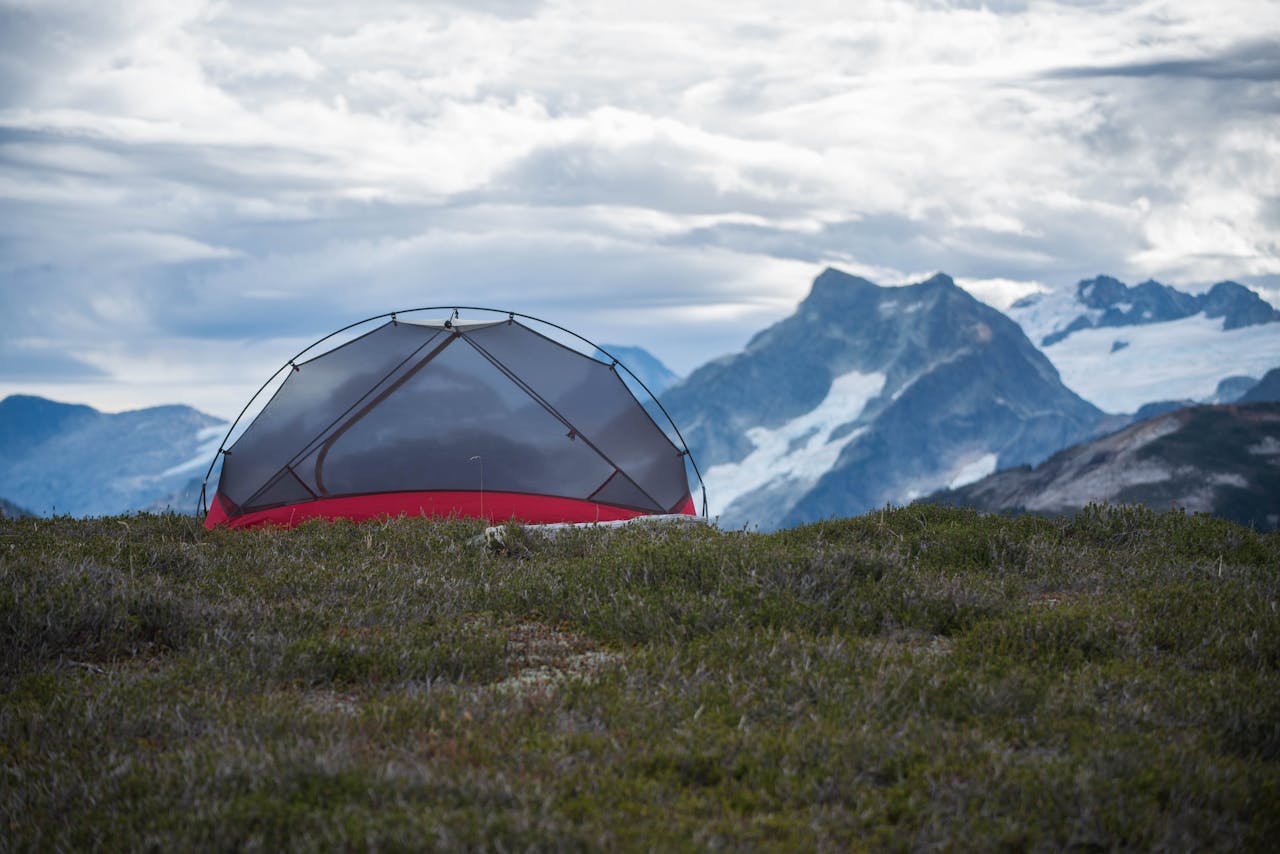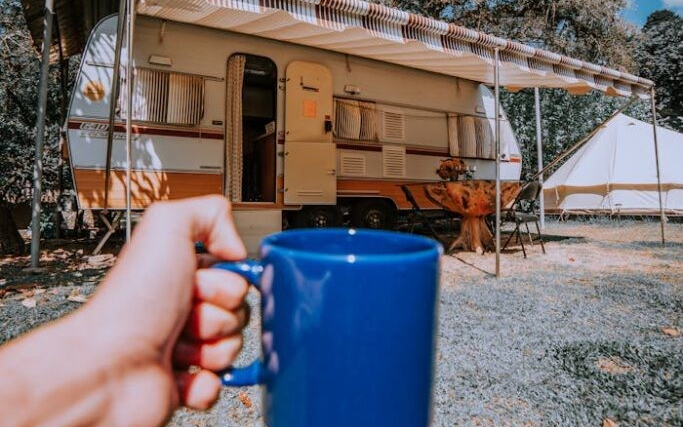Are you ready to leave the comfort of your home and venture into the great outdoors? Camping is an excellent way to reconnect with nature, but it can be a bit overwhelming if it’s your first time. However, with the right preparation and advice, your experience will be unforgettable. Below, I’m sharing 10 essential camping tips for beginners, with a focus on the gear you’ll need! Let’s get started!
1. Choose the Ideal Campsite
One of the first steps for a successful experience is choosing the right campsite. If it’s your first time, it’s best to opt for a campground with basic facilities like bathrooms and potable water. This will make your first experience outdoors much more comfortable. National parks and designated camping areas often offer these amenities, along with marked trails and safe areas for campfires.
- See more in our article about recommended national parks.
Also, research the area’s weather conditions, the types of activities available, and ensure the location fits your expectations. For beginners, it’s important to keep things simple and avoid remote sites until you gain more experience.
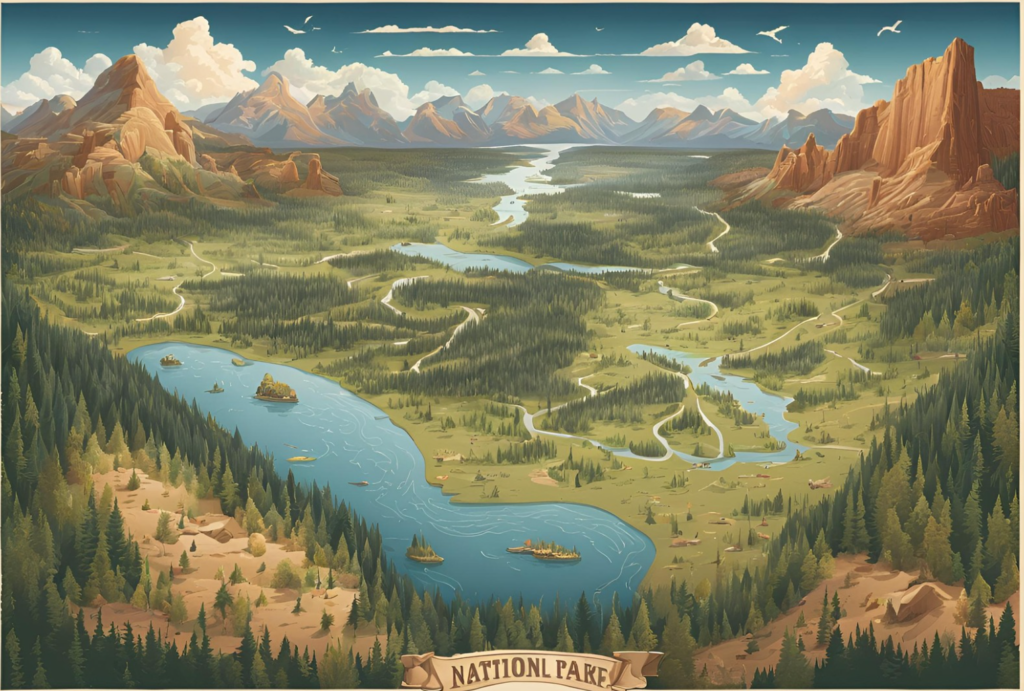
2. Invest in Quality Camping Gear
One of the most important aspects of camping is having the right equipment. While you don’t need to spend a fortune, it’s essential to invest in camping gear for beginners that’s of good quality. Make sure you have a sturdy, easy-to-pitch tent that’s suitable for the weather. Similarly, your sleeping bag should be comfortable and rated for the nighttime temperatures where you’ll be camping.
- See ☛ how to choose the ideal tent.
A comfortable camping backpack with ample capacity is another essential item. Make sure it has enough room for all your gear without being too heavy. Investing in good gear will make the difference between an uncomfortable trip and a pleasant one.
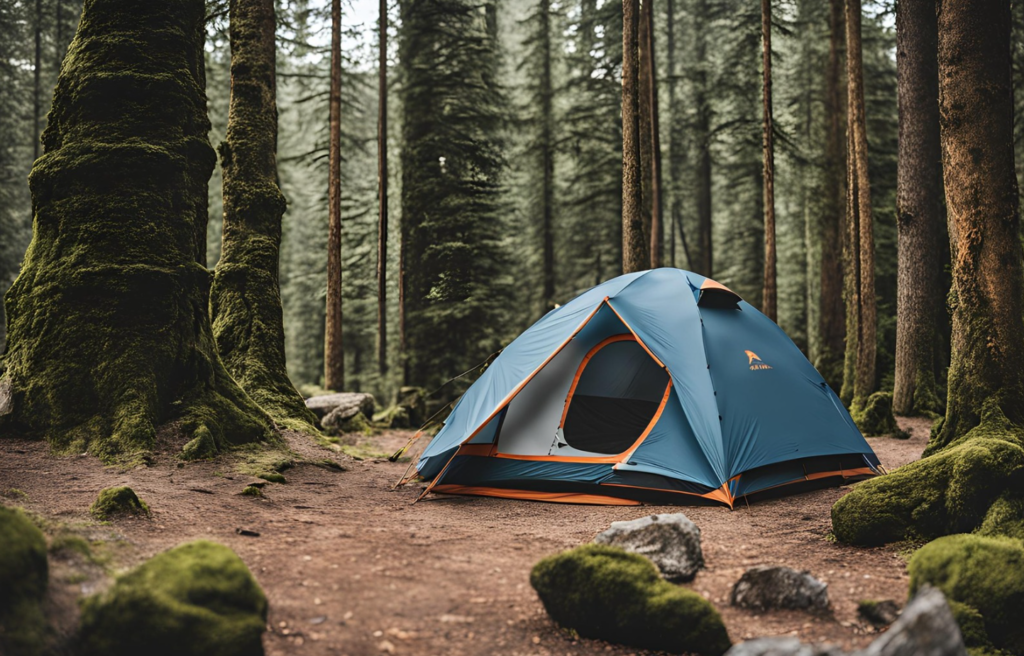
3. Practice Pitching Your Tent
The worst time to learn how to pitch your tent is when you’re at the campsite, facing wind or rain. That’s why I recommend practicing setting it up at home before you head out. Do it in your backyard or living room to get familiar with the process. This way, you’ll avoid the stress of improvising at the campsite.
- You may get interested: how to pitch a tent step-by-step.
Make sure the stakes are well anchored, and the tarp is tight. A common mistake among beginners is not securing the tent properly, which can lead to problems if the weather turns unexpectedly.
4. Pack Efficiently
The art of efficient packing is fundamental to a successful camping trip. Make a list of everything you’ll need and adjust it based on the weather and the length of your stay. In addition to basic gear (tent and sleeping bag), pack clothing appropriate for the season, easy-to-prepare food, and basic cooking utensils. what to pack for a camping trip ?.
A good strategy is to pack in layers: the most essential items should be easily accessible, while things you’ll only use at night, like sleepwear, can go at the bottom of your pack. Don’t forget to bring a flashlight, a multi-tool, and a first-aid kit. It’s always better to be prepared.
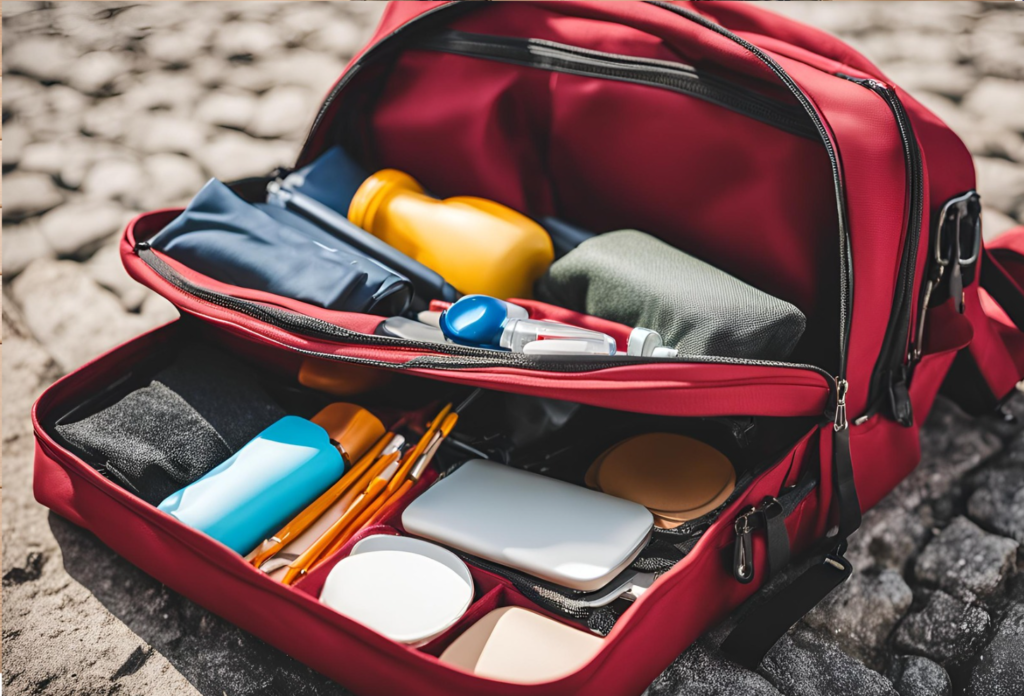
5. Learn the Safety Rules
Every campsite has its own rules, and it’s important to learn them to ensure your safety and that of others. Some sites may require you to use bear-proof food containers to avoid attracting wildlife. Also, familiarize yourself with the rules for campfires and waste management. Following these guidelines helps minimize environmental impact and avoid potential penalties.
- Read more in our article about camping safety rules.
Remember, one of the biggest threats to the ecosystem is human behavior, so it’s crucial to follow the guidelines to preserve the natural environment.
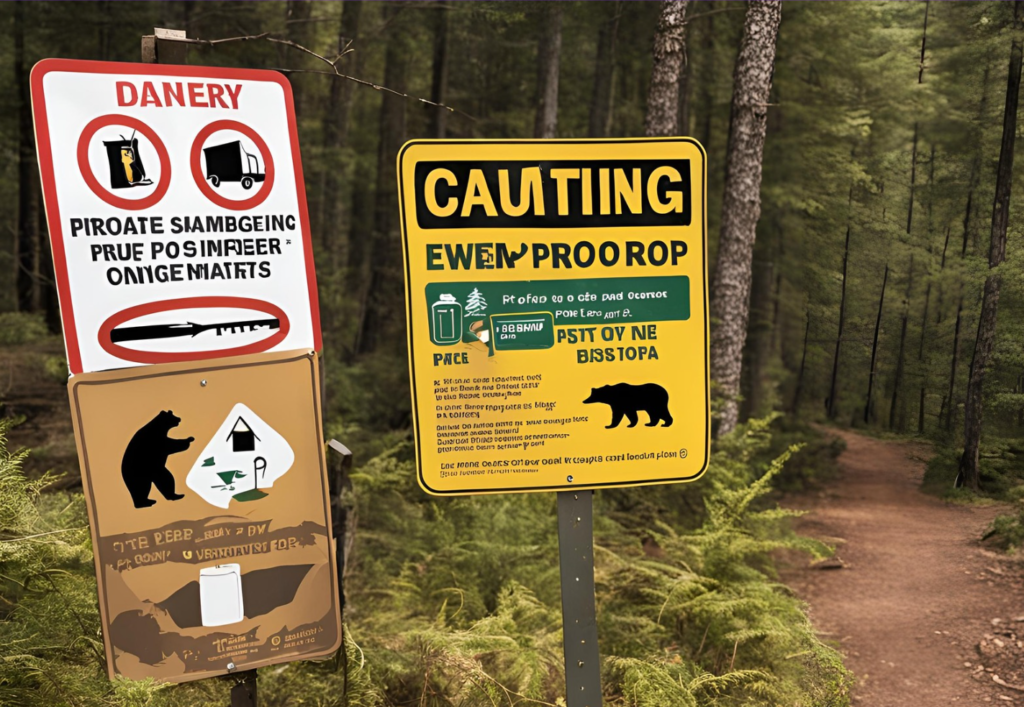
6. Plan Your Meals
One of the biggest challenges for beginners is planning meals. Opt for non-perishable, easy-to-make foods like instant soups, pasta, and energy bars. If you enjoy cooking, a small portable stove and basic utensils can allow you to prepare more elaborate meals like stews or scrambled eggs.
- You may get interested: easy camping recipes.
Make sure to pack enough drinking water, and if the campsite provides water, bring a filter or purification tablets just to be safe. Staying hydrated is essential, especially if you’re hiking or engaging in physical activities.
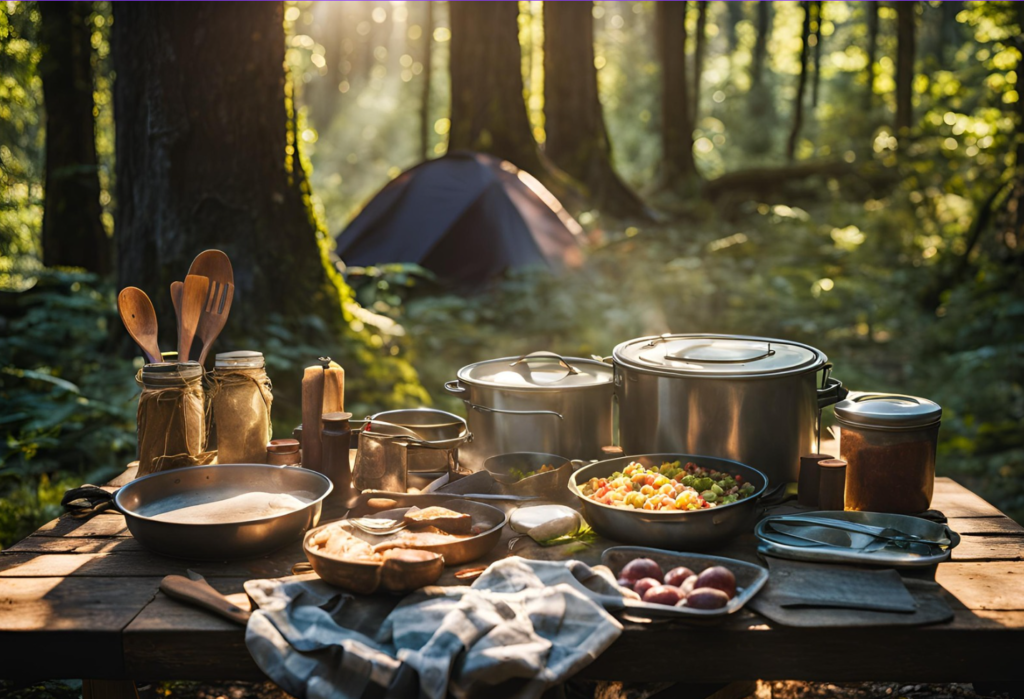
7. Keep the Campsite Clean
Respecting nature is key to any camping trip. Make sure to bring trash bags and clean up all your waste before leaving. The rule is simple: leave the place cleaner than you found it. Additionally, if you’ve built a campfire, ensure it’s completely out before leaving the campsite.
- See how to be a responsible camper.
By doing this, you help preserve the space for future visitors and become a conscientious camper who minimizes their environmental impact.
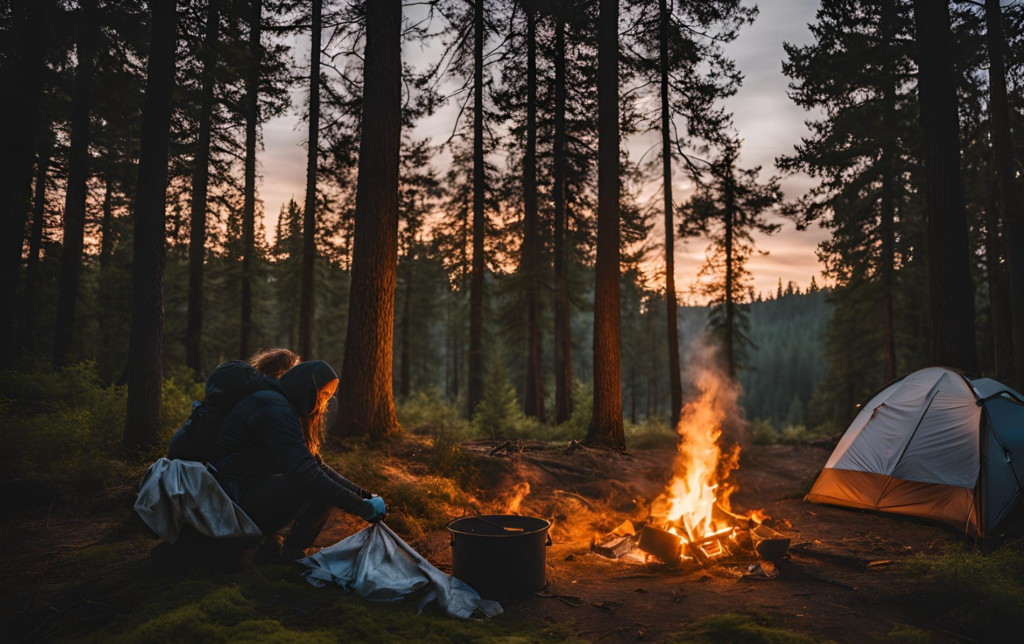
8. Prepare for Unexpected Weather
Weather can be unpredictable, and being prepared is essential for any beginner. Bring appropriate clothing for various conditions, including a waterproof jacket, extra layers for cold weather, and a hat to protect you from the sun. Nights in the outdoors can be much colder than you expect, even in the summer, so it’s always better to have something extra. Read what to wear on a camping trip.
Check the weather forecast before you go, but don’t rely on it entirely: weather can change quickly in mountainous areas or near bodies of water.
9. Ensure Everyone’s Comfort and Safety
Your safety and the safety of your group are the most important things. Make sure everyone knows the campsite’s location and meeting points in case of an emergency. Bring sunscreen, insect repellent, and any necessary medications. These small measures might seem simple, but they can save you from potential issues during the trip. what to include in a camping first aid kit.
10. Relax and Enjoy!
The goal of your first camping trip isn’t just survival—it’s to have fun! Disconnect from the distractions of daily life and take the opportunity to explore nature, go hiking, or just sit around the campfire and enjoy a good conversation.
Camping is a unique experience that connects you with nature in a special way. If you follow these camping tips for beginners and ensure you have the right camping gear for beginners, you’ll be ready for your next adventure. Remember, preparation is key, but so is flexibility and a positive attitude. Now it’s time to pack up, choose your destination, and get out there to enjoy the outdoors!

